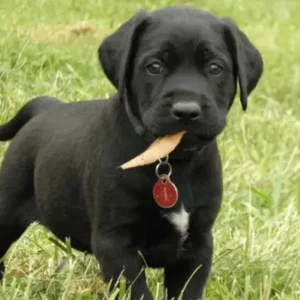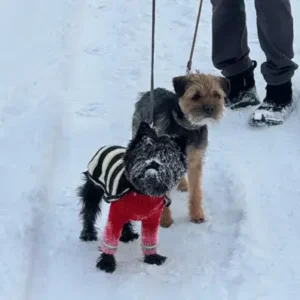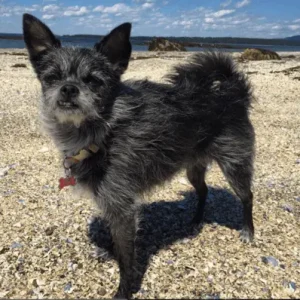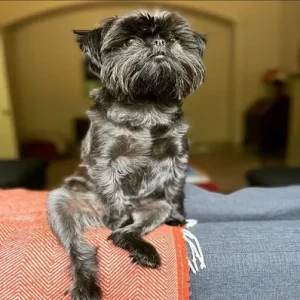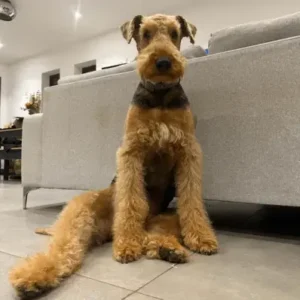Appenzeller Sennenhund History/Origin
The Appenzeller Sennenhund, also known as the Appenzeller Mountain Dog or Appenzeller Cattle Dog, has a history deeply rooted in the Swiss countryside. These purebred dogs come from the Appenzell region. They belong to a group of mountain breeds in Switzerland. This group includes the Bernese Mountain Dog, Entlebucher Mountain Dog, and Greater Swiss Mountain Dog.
Bernese Mountain Dog- source: Unsplash
Entlebucher Mountain Dog- Source: Pixabay
Greater Swiss Mountain Dog- Source: Pixabay
Centuries ago, in the rugged Swiss Alps, the Appenzeller Sennenhund played a vital role in the lives of farmers and cattle herders. They were not just herding dogs; they were also guardians, protecting livestock and property with their sharp instincts and loyalty.
With their eye-catching tri-color coats and sturdy bodies, these dogs became icons of Swiss rural life. They were recognized for the first time in 1896 or 1898 when they were shown in the International Dog Show in 1898.
Albert Heim established the Appenzeller Sennenhund Club in 1906 and gave out a complete breed standard for this dog by 1914.
Over time, their duties may have shifted, but their dedication to their families has remained constant. Today, they are still loved for their smarts, adaptability, and loyalty. They are considered a rare breed and are listed with the American Kennel Club’s Foundation Stock Service.
Appenzeller Sennenhund Personality
Appenzeller Sennenhunds are known for their intelligence and spirited demeanor. These dogs have a natural curiosity and enthusiasm for life, making them lively companions for active households. They have a keen intellect and thrive when provided with mental and physical stimulation.
Their working heritage is reflected in their diligent nature. Appenzellers are known for their strong work ethic and willingness to tackle tasks. Whether herding livestock or engaging in canine sports, they approach their duties with dedication and enthusiasm.
- Appenzeller Sennenhund Temperament
Despite their independent streak, Appenzeller Sennenhunds bonds closely with their families. They are affectionate and loyal companions, often demonstrating a strong sense of devotion to their loved ones.
While they may maintain a degree of independence, they prefer to be involved in family activities and thrive on attention and interaction.
Additionally, Appenzeller are inherently protective of their home and loved ones. They are very active dogs. They are very high-energy dogs, they do well with older children but still require care. So, if you like taking walks to the dog park every day, they’ll make a good pet for you.
Overall, Appenzeller Sennenhund’s personality is characterized by intelligence, high energy, and loyalty. They are versatile companions who excel in both work and play!
- Training Challenge
Appenzeller SennenhundsAppenzeller Sennenhunds require gentle yet consistent handling during training, as they do not respond well to harsh methods. Owners should maintain firm, respectful, and consistent training to nurture their watchful and protective nature.
Socialization from an early age is crucial, exposing them to various people, dogs, and environments to ensure well-rounded behavior. While not suited for inexperienced owners, a properly trained Appenzeller is an immensely loyal and loving companion when provided with guidance and purpose.
Appenzeller Sennenhund Physical Appearance
True to their working heritage, Appenzeller Sennenhunds possess a muscular and athletic build. Their strong, well-developed limbs enable them to navigate rugged terrain and perform tasks with agility and precision.
The Appenzeller Sennenhund’s face is expressive, with dark, almond-shaped eyes reflecting intelligence. Their medium-sized, triangular ears sit high on the head and fold forward when alert. Distinctive facial markings, like eyebrow patches and cheek spots, contribute to their lively expression.
- Appenzeller Sennenhund Size
These dogs typically fall into the medium to large size category. Adult males typically stand between 18 to 23 inches at the shoulder. Whereas females are slightly smaller, ranging from 18 to 22 inches. Typical Appenzeller Sennenhund puppies weigh around 29 pounds.
Despite their robust build, Appenzeller are agile and well-proportioned, allowing them to navigate challenging terrain with ease.
- Coat Color and Texture
One of the most notable features of the Appenzeller Sennenhund is its tri-color coat. This breed typically exhibits a striking combination of black, tan, and white markings.
The black coloration forms the base of the coat, with rich tan markings on the eyebrows, cheeks, chest, and legs. White markings often accentuate the face, chest, and tip of the tail, creating a distinctive and visually appealing pattern.
Appenzeller Sennenhunds have a dense double coat that protects from the elements. The outer or top coat is short to medium in length and lies close to the body, offering insulation and resistance to water and debris.
Meanwhile, the undercoat is soft and insulating, providing additional warmth during colder weather.
Tri color Appenzeller Sennenhund- Source: AKC.org
Appenzeller Sennenhund Gender Differences
Male and female Appenzeller Sennenhunds may differ subtly, with males typically displaying a slightly larger and more muscular build. However, both genders share common traits of intelligence, loyalty, and energy.
Females may show a bit more independence and assertiveness, while males might display more dominance.
However, early training and socialization are vital for shaping their personalities. With proper guidance, both genders make devoted companions for the right owner or family
Appenzeller Sennenhund Feed/Nutrition
Feeding your Appenzeller Sennenhund the right food is crucial for keeping them healthy and happy. These active dogs need a balanced diet that matches their size, age, and energy levels like every dog breed.
Choose a high-quality dog food designed for medium to large breeds. Look for one with protein-rich ingredients like meat or fish listed first.
Watch their portions to prevent overeating and weight gain. It’s better to feed them smaller meals several times a day rather than one big meal.
Be careful with treats such as grapes and scraps from the table. Too many can lead to health issues, so keep them in moderation.
Always have fresh water available for your Appenzeller Sennenhund, especially after exercise or on hot days.
If you’re unsure about their diet, talk to your vet for personalized advice. With the right nutrition, your Appenzeller Sennenhund will stay healthy and full of energy.
Appenzeller Sennenhund Health Problems
Overall, the Appenzeller Sennenhund is a relatively healthy dog breed. However, they may be prone to certain health issues:
- Hip Dysplasia: Appenzeller Sennenhunds are susceptible to hip dysplasia, a condition where the hip joint doesn’t develop properly, leading to discomfort and mobility issues. This can result in pain, lameness, and difficulty moving, particularly as the dog ages. Preventing hip dysplasia involves responsible breeding practices and weight management. Treatment may include weight control, exercise, physical therapy, and, in severe cases, surgical interventions like hip replacement.
- Progressive Retinal Atrophy: PRA is a genetic eye disorder that causes progressive deterioration of the retina, leading to vision impairment and eventual blindness. While not all Appenzeller Sennenhunds will develop PRA, breeders need to screen for this condition to minimize its prevalence in the population. Prevention focuses on selective breeding and regular ophthalmic examinations, while treatment entails supportive care strategies following early diagnosis to slow progression, although there is no cure.
- Cataracts: Cataracts are another eye condition that can affect Appenzeller Sennenhunds. This condition causes clouding of the lens, resulting in blurred vision or even blindness if left untreated. Regular eye exams by a veterinarian can help detect cataracts early and ensure appropriate management. Preventing cataracts involves genetic screening and responsible breeding. Treatment consists of surgical removal followed by lens implantation and post-operative care for vision restoration.
- Degenerative Myelopathy (DM): Degenerative myelopathy is a progressive neurological disorder that affects the spinal cord, leading to weakness and loss of coordination in the hind limbs. While not exclusive to Appenzeller Sennenhunds, this breed may be predisposed to DM. Early detection and management can help improve the quality of life for affected dogs. Prevention includes genetic testing of breeding stock, and treatment involves supportive care measures such as physical therapy and pain management to maintain quality of life, as there is no cure.
Regular vet check-ups and a balanced diet can help maintain their health.
Appenzeller Sennenhund Care and Grooming
Appenzeller Sennenhunds have a dense double coat that requires regular maintenance to keep them looking their best and feeling comfortable.
Due to their dense double coat, Appenzellers benefit from regular brushing to remove loose hair, prevent matting, and distribute natural oils throughout the coat. Aim to brush them at least a few times a week, if not daily, using a slicker brush or grooming mitt.
Appenzeller Sennenhund shedding is moderate year-round, with heavier shedding occurring during seasonal changes. During shedding seasons, more frequent brushing can help remove loose hair and minimize shedding around the home.
While Appenzellers don’t typically require frequent baths, they should be bathed as needed, such as when they get particularly dirty or start to develop a strong odor.
Regularly check and clean your Appenzeller’s ears for debris or redness. Trim their nails every few weeks to prevent discomfort. Brush their teeth regularly with dog-specific toothpaste and a toothbrush. Use dental chews and toys to maintain oral health.
Appenzeller Sennenhund Price
The average Appenzeller Sennenhund price ranges from $1800 to $2200. When buying an Appenzeller Sennenhund puppy, it’s essential to buy from a reputable breeder who prioritizes health.
Appenzeller Sennenhund Rescue Groups
Several rescue organizations specialize in the rehabilitation and rehoming of Appenzeller Sennenhunds:
Interesting Facts
- The Appenzeller Sennenhund is named after the Appenzell region of Switzerland, where they were originally bred.
- Traditionally, Appenzellers wore a bell around their necks while herding cattle. The purpose was twofold: to locate the dog in the vast Alpine meadows and to alert the farmer when the cattle were on the move.
Best For
The Appenzeller Sennenhund is best suited for active families who can provide ample exercise and mental stimulation. They thrive in environments where they have a job to do, whether it’s herding livestock or participating in canine sports.
Appenzeller Sennenhund Top Names
| Male Appenzeller Sennenhund Names | Female Appenzeller Sennenhund Names |
| Max | Rosie |
| Bruno | Sophie |
| Cooper | Chloe |
| Jasper | Lily |
| Rocky | Mia |

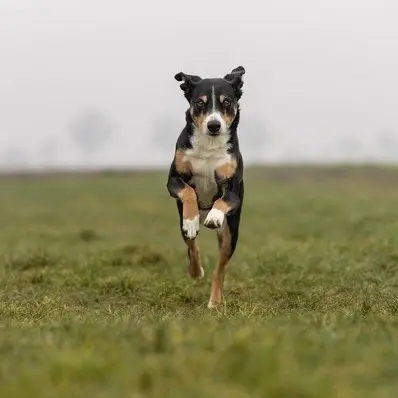







 Bernese Mountain Dog- source:
Bernese Mountain Dog- source:  Entlebucher Mountain Dog- Source:
Entlebucher Mountain Dog- Source:  Greater Swiss Mountain Dog- Source:
Greater Swiss Mountain Dog- Source: 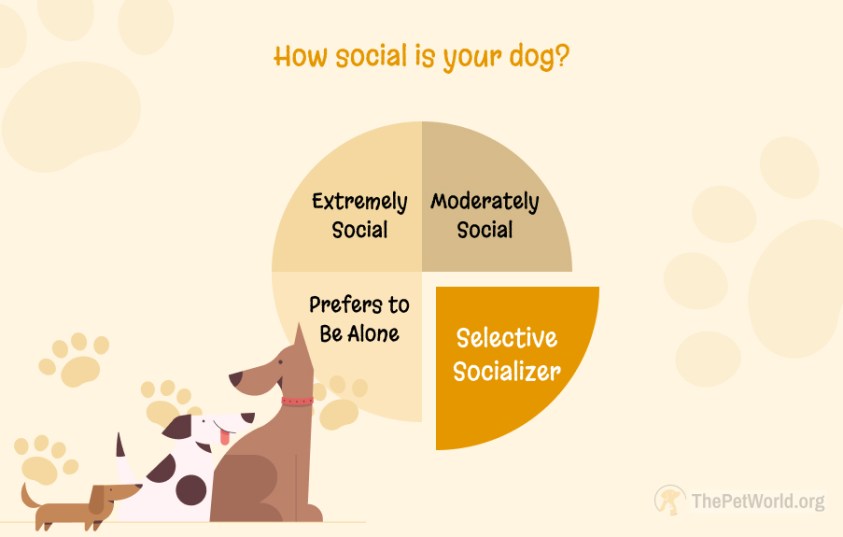

 Tri color Appenzeller Sennenhund- Source:
Tri color Appenzeller Sennenhund- Source: 


